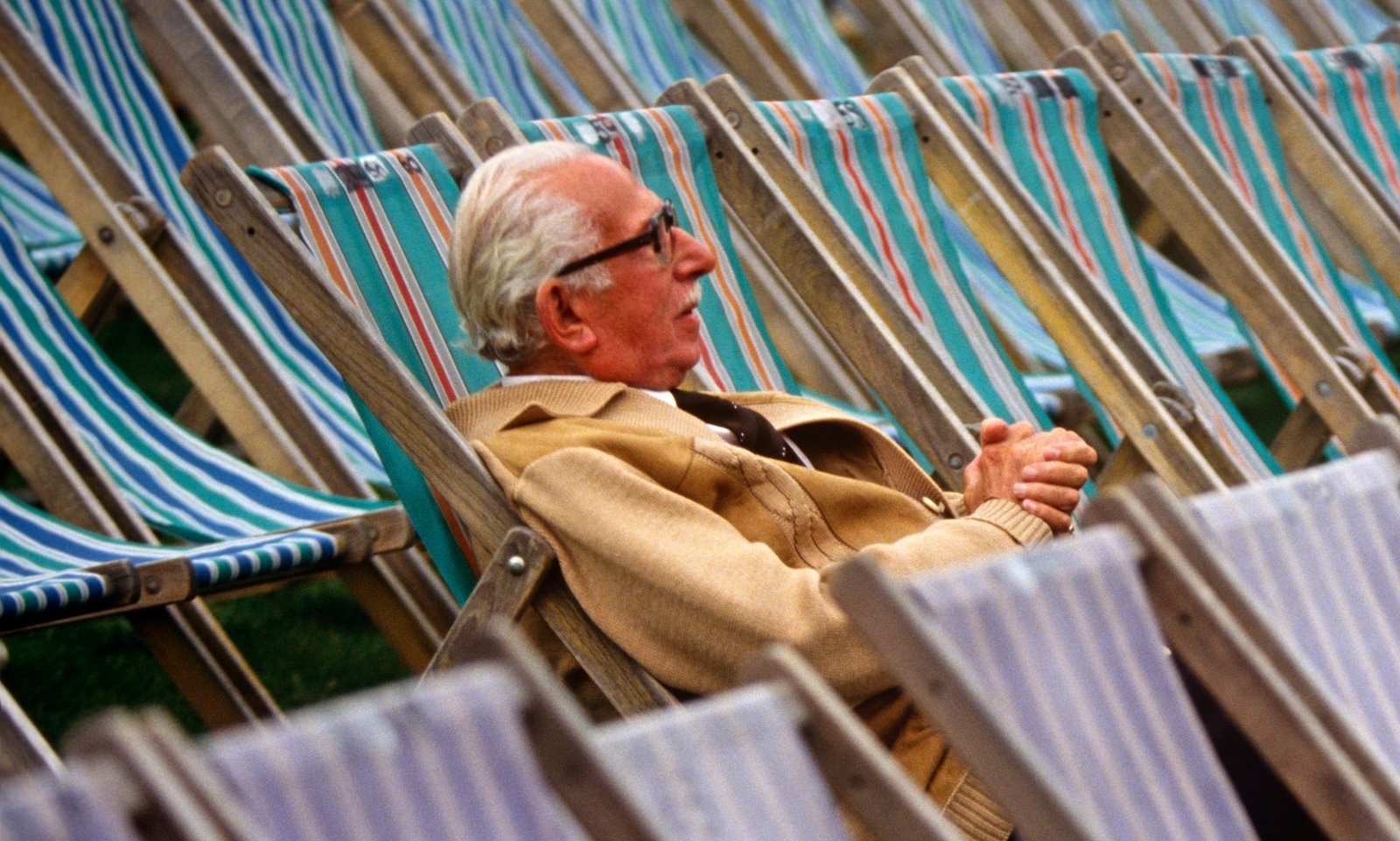Pensions
The average age of people is increasing, and the state can no longer cope with the costs. After two months of talking with people from Britain about retiring, we realized that old age is becoming an increasingly frightening prospect.

We are entering an era without pensions. The journey to this scary reality is not long: the first generation, to which she will fall, is now at the age of 40-50 years. They grew up expecting the same kind of pensions as their parents enjoyed – to finish work by the age of 65, and to receive a pension sufficient to spend the remaining health to fulfill old dreams. But for them it’s probably late to change something to get an opportunity to retire.
In 2010, British women retired at 60, and men – at 65. By October 2020, people Both sexes will have to wait until 66. By 2028 this age will increase to 67. And this growth will continue. By the 2060s, people will work at the age of 70, but according to the research, we all will have to work after 80 to get the same pension that our parents got.
This is how the world looks without pensions. Workers will not be able to lay down their tools, even when they are already struggling to hold their hands, knotted with age-related arthritis. The rise of the retirement age will create a new level of social inequality. People living in places where life expectancy (OWL) is less than the retirement age (in the southeast of England it is the highest, in Scotland – the lowest), will die before they can claim their pension, which They worked all their life. In other words, the rich people will reap the benefits of state support.
Most likely, the pension provision will remain close to the current form in the short and medium term. But in the long term, this provision will disappear completely.
For people of retirement age who can not afford to retire, and can not continue to work – for health reasons, because of the need to care for parents, because of The fact that employers prefer to hire younger people – the progress achieved by Britain over the past couple of decades in combating poverty among the elderly, will roll back. This group of people will face widespread poverty, which has not been seen in Britain for 30-40 years.
Many people at the age of 20 and a few years old will not be able to make savings in adolescence and maturity due to the increasing share of irregular hiring, student debts and rising property prices. When they grow old, members of this new generation of poor pensions will be in a much worse situation than the average poor pensioner today.
Several factors cause this: longer life expectancy, disgusting retirement planning by government officials, end of “final salary” scheme “(According to which people received 2/3 of their last salary as a pension) and our inability to accumulate.
I spent two months investigating what a pension looks like today – and what it can turn into with the next wave of pensioners, for their children and grandchildren. It turns out that the state support of pensions flies into the pipe. Under the weight of increasing life expectancy, retirement – one of the most valuable institutions of the state – is threatened with collapse.
Many of those who are waiting for retirement are concerned about the new situation. A 62-year-old woman, for the first time in her life experiencing problems with paying a mortgage, said to me: “Now I’m straining more than when I was 30. Then I lived in a tight budget, but I was young and could tolerate it. I do not want to whine, but I never thought that I would be so afraid of the future. I’m not a materialist and I have not dreamed of a luxurious life. But it’s very scary, do not be sure that in a few months you will still have a home. ”
Old age is afraid not only of the adult generation. Adam Palfrey is now 30, he has three children and a disabled wife who can not work. “I admit, I’m terribly afraid of retirement,” he told me. – I do not have any savings. They are not even talked about. I earn enough to be kept afloat with subsidies for housing, disability and tax rebates. I work for this, as much as I can. I certainly will not be able to continue in this mode until the age of 70 and beyond, just for the sake of me and my wife being able to lead a simple existence. And my three children … God knows. I’m afraid to think about it. ”
The aging of the population is not news. It’s amazing that we were not able to prepare for these inevitable changes. The UK is growing at a frightening pace, five hours a day. Thanks to a period of relative calm, low infant mortality and medical advances, over the past 20 years, the infant mortality rate has increased by 5 years. The OC of an infant born at the end of my 8-week study of the retirement program is 12 days longer than that of the person born at the beginning.

In 2014, the average age in Britain For the first time exceeded 40 years – from 33.9 years in 1974. In just 10 years, half the people in the country will be more than 50 years old. This will transform Britain, and it will not be a temporary phenomenon. The trend will continue along with the increase in OPR. This year there was a turning point in the country’s demography. A generation of baby boomers aged 53 to 71 years began to retire, and for the first time since the 1980s, people who are too old or too young to work have become more numerous than working.
The number of people in Britain with the age of more than 85 years should double over the next 25 years. By 2040 the age of almost every seventh Briton will exceed 75 years. Half of the already born children will live to the age of 103 years. 10 million living today in the country (and 130 million Europeans) will live to 100 years.
Serious difficulties arise. The imbalance of taxes in an aging society, in which tax revenues do not reach the amount of consumed services, will reach £ 15 billion by 2060. To cover this difference, it will be necessary to raise taxes by 4%.
It is easy to see why the government regards raising the retirement age as a way of covering the cost of an aging population. Employment of people, whose age is approaching 70, will be able to maintain the ratio of the number of working people to non-working for many years to come. And if the percentage of working old people coincided with the percentage of people working between the ages of 30 and 40, additional tax revenue could be £ 88.4 billion. According to the “golden age” index of PriceWaterhouseCoopers, if in Britain the percentage of working people aged More than 55 years would be as high as in Sweden from 2003 to 2013, Britain’s GDP would be 5.8% larger.
But this approach has its problems. A small, privileged proportion of people will be able to work after 70 years. It will be a highly educated elite who did not spend their lives working, worsening their health. If you raise the retirement age further, people with health problems, relatives who need to be looked after, or unemployed will have to be extremely difficult.
A new state pension will be paid to men born on April 6, 2016 Not earlier than April 6, 1951, and to women born not earlier than April 6, 1953. If a person has paid national insurance for 35 years, the pension will be £ 155.65 per week.
Frank Field, Labor MP and Chairman of the Work and Pensions Committee, told me that new payments of £ 8,000 a year are enough to ensure that all pensioners have a decent standard of living: an “adequate minimum” , According to him. Large sums will require private investment.
“After reaching a minimum, this is not the work of the government, bribing people so that they postpone more,” he says. “The goal of state pensions has never been to provide smart pension benefits.”
Is it possible to call this pension a “comfortable minimum” – it depends on the point of view. Dr. Ros Altman, who has been working on the pension policy since April 2015, is a pension defender for working old people and head of the Institute for Pension Policy. When I gave her a comment Field, she was speechless. Then I could only say “wow”. “Did he really say that?” And he would have liked to live only £ 8,000 a year? ”
Tom McPhail, head of the pension policy department at the consulting firm Hargreaves Lansdown, is confident that the new state pension is not at a level sufficient for a decent life in an advanced aged people without additional income. “How much will a new pension be sufficient?” It’s easy to answer: it will not be, “he says.
Field suggests that people will have enough private savings that they can add to the state pension. But in fact, many people do not have any savings – almost a third of households will have problems if they need to pay an unexpected account for £ 500 – neither accounts in private pension funds, in order to raise their pension to a comfortable level, as most people understand it. In fact, savings – this is a serious divide when retiring, and so-called. “Pension gap” – the difference between the size of a pension and the income necessary for a comfortable life – is shocking.
Three out of 10 British at the age of 55-64 do not have any retirement savings. Almost half of people aged 30-40 years do not lay money. Part of this is due to our underestimation of the amounts necessary to accumulate. According to a study by Saga, 4 out of 10 people over 40 have no idea of the cost and lifestyle of people retired. When they found out how much money needed to be put off to retire to provide pension payments, 80% of them admitted that they had underestimated these amounts.
Pension is an older concept. It led to one of the most terrible military disasters faced by the Roman Empire. In ’14 BC The emperor increased the retirement age and reduced the pensions of legionnaires, which led to an uprising in Pannonia and Germany. The instigators were then caught and executed, but this institution remains so valuable that any threat to its existence can lead to a riot. “Our pensions were stolen. You can pay as much as you want. We will never return the money. It’s time for a gray revolution, “one of the readers wrote to me.

In 1881, German Chancellor Otto von Bismarck delivered a radical speech in the Reichstag, urging the introduction of state financial support for people Over 70 who are “unable to work because of their age and disability.”
This scheme was not such an ideal of socialism: Bismarck advocated a disability pension, and not for a pension in the current sense. In addition, the age of retirement in his speech corresponded to the average life expectancy at that time. Nevertheless, he foresaw reforms that were too radical for his time: he offered to lead a pension for people of any age, if the person could be considered unfit for work. The earlier a person would retire, the less he would receive.
His ideas periodically come up in different versions. The New Economics Foundation believes that it is necessary to shorten the working week as part of a “slow retirement”, when employees start working for an hour less every week, starting at 25 years old. The idea is that the old workers will free working hours for the young, which will ensure a smooth transfer of experience. Universal basic income, a fixed amount of money received by a person, regardless of whether he works or not, can lead to the same effect, allowing people to switch to a part-time working week with age.
Widespread poverty among people aged For 65 years led to the creation of the National Insurance Law of 1946, which presented the first funded pension with a single rate in Britain for women after 60 years and men after 65. At first, pensions were small, and they were short of life. But by the end of the 1970s the amount of the state pension had grown, and a growing number of people-mostly men-received the benefits of a working pension. By 1967, more than 8 million employees working in private companies were provided with a “last salary” pension, and with them 4 million civil servants. In 1978, the Labor government introduced a system of earnings for people who were not available to the scheme of commercial companies.
When pensions reached values that allowed people to leave work without fear of poverty, older men (less often women) Began to experience a “third age”, between the end of work and the arrival of old age. In 1970, among men aged 60-64 years were working 81%. By 1985, this number had fallen to 49.7%.
Access to comfortable old age is a powerful political idea. John McNichol, a professor at the London School of Economics and author of the book Neoliberalization of Old Age [Neoliberalising Old Age]believes that in a situation in which young workers needed jobs after the end of World War II, a “socially elegant mythology” was created, according to which pension was declared a time , In which old workers can relax.
He believes that in the 1990s this tale was cynically changed, and the image of pensioners was specially changed: from the poor, the weak and the dependent, they turned into wealthy, hedonistic adayuschih political influence and selfish. The notion of a “prosperous retiree was created in the face of evidence demonstrating the opposite,” he says, “in order to undermine the right to a pension. Attempts of violent working practices, coercion of old people to work could be presented as providing new “opportunities”, eliminating working barriers, which created a suitable illusion and led to social mobility. ”
A change in attitudes towards pensioners helped the government push through age changes retirement. In 1995, the Conservative government, run by John Major, announced an increase in the retirement age from 60 to 65 years for women planned for the period from April 2010 to April 2020. Most people agreed that the equation of the retirement age of the sexes was fair. But people objected to the fact that the government waited until 2009 – when it was only a year before the reform – to start reporting this to people who fell under the reform, leaving thousands of women without the opportunity to change their financial or working conditions in order to adjust to the increasing pension gap.
In 2011, when the retirement age of women reached 63 years, the coalition government accelerated the inevitable. Now the retirement age for women rises to 65 in November 2018, and then it will grow together with the masculine: to 66 by 2020, and to 67 by 2028.
Retiring after working in the Ministry of Work and Pensions In 2016, Ros Altman considered that she “is not convinced that the government adequately managed with women whose retirement age increased after a warning made so late.”
After surviving cancer at age 52, Jackie Harrison, Which now 62, estimated her savings and decided that she can afford to get out early on a pension . “I have earned 36 years of pension contributions,” she says. “I called the Department of Work and Pensions every year to make sure that I was working enough to receive a pension at 60.”
Then she was told that her retirement age was increasing from 60 to 63 years and six months. “I did not get subsidized because of my husband’s pension, but I could still manage and live up to a new age of retirement,” she says. But when she hit 58, the goal was again pushed aside – now already up to 66 years old. “I have not worked so long that I do not hope to get settled again,” she says. “But I was not given enough time to deal with the finances.”
Harrison took an unpleasant decision to sell her patrimonial nest and move to another city, cheaper. Her decision strongly influenced by her family and the state. She had to leave an adult daughter, a grandson and parents who are already over 80.
“I did not plan such a pension,” Harrison told me. – I once had a lot of savings, but now I’m always worried about finances. It seems dishonest, because I worked all my life and planned a pension. I do not know how I would handle another four years. ” Women born in the 1950s already live in an era without pensions.
In 2006, employers were given the right to force workers over 65 years of age to retire. Public organizations conducted several campaigns, arguing that the new rules violated the laws of the European Union and gave employers the possibility of age discrimination. В октябре 2011 года этот закон отменили.
С тех пор рабочая сила Британии седеет на глазах. За последние 15 лет количество работающих в возрасте от 50 до 64 лет людей увеличилось на 60%, до 8 млн (это гораздо больше, чем увеличение количества людей в возрасте за 50). Пропорции работающих людей в возрасте от 70 до 74 лет за последние 10 лет почти удвоились. Эта тенденция продолжится. К 2020 году треть работников будет старше 50.

Пропорциональный рост числа работников может быть большим, но этот рост идёт с малых абсолютных величин. Эмпирически он не такой позитивный: почти треть людей в Британии в возрасте от 50 до 64 лет не имеет работы. Работу теряет больше людей, чем находит: почти 40% людей, живущих на пособие, старше 50, что говорит о том, что люди в возрасте не могут найти новую и нормально оплачиваемую работу.
К 2020 году примерно 12,5 млн рабочих мест освободятся из-за ухода пожилых людей. А заполнить эти места сможет только 7 млн молодых людей. Если не заполнить этот разрыв эмигрантами, работодателям придётся поступиться своими предубеждениями и адаптировать рабочие места, а социальным работникам придётся заменять стареющих людей, не способных заботиться о внуках и стареющих супругах из-за того, что они не могут уйти с работы.
Но если заставлять стареющих людей работать, когда им это тяжело, то это может принести больше вреда, чем пользы. Профессор Дебора Прайс, директор Манчестерского института совместных исследований старения, сказала мне: «Есть доказательства того, что возможность работать в возрасте, превышающем возраст выхода на пенсию, может усугубить неравенство, поскольку те, кто сможет работать в таком возрасте – это обычно высокообразованные мужчины на высокооплачиваемой работе».
Один из вариантов – вернуться к плану Бисмарка, по которому на государственную пенсию смогут претендовать люди в любом возрасте, предпочитающие получать меньшую сумму, вы одя на пенсию раньше пенсионного возраста – возможно, из-за слабого здоровья или других проблем.
Но на прошлой неделе этот вариант был отвергнут Джоном Кридлэндом, бывшим главой Конфедерации Британской индустрии, группы лоббистов, назначенной правительством в марте 2016 года, чтобы снизить траты на пенсии, исчисляемые £100 млрд ежегодно, пересмотрев возраст выхода на пенсию.
Кридлэнд порекомендовал увеличить возраст выхода на пенсию с 67 до 68 лет к 2039 году, на семь лет раньше, чем планировалось. Это отодвинет пенсионный возраст ещё на год для тех, кому сейчас немного за 40. Кридлэнд отмёл призывы к разрешению раннего доступа к пенсии людей с проблемами со здоровьем, но оставил лазейки для помощи таким людям за год до наступления пенсионного возраста.
Несмотря на все проблемы с деньгами, что меня особенно удивило при общении с людьми пенсионного возраста – удовольствие, которое они получают от жизни.
Одна бабуля заявила мне: «На прошлой неделе я прошла через многолюдный паб, чтоб забрать выигрыш в лотерею. А оказалось, у меня платье было в панталоны заправлено! Несколько лет назад я б со стыда сгорела. А теперь уже нет. Я им сказала, что им повезло, что было холодно, и я надела панталоны!»
Моника Хартвел, 69 лет, участвует в народном театре Regal в Майнхеде, а также её сообщество заведует клубом любителей кино и музеем. «В старости хорошо то, что ты становишься больше уверен в себе, – сказала она мне. – Избавляешься от беспокойства по поводу того, что о тебе подумают другие: по поводу размера твоей задницы, или вообще, правильно ли тебя оценивают люди. Это не зазнайство, но когда ты старый, ты уже знаешь, кто ты есть, и все эти роли, сыгранные тобой в более раннем возрасте, уже не имеют значения».

Данные статистики согласуются с этим: самой счастливой взрослой группой признаются люди от 65 до 79 лет. Недавно в одном отчёте было указано, что у женщин старше 80 лет бывает больше хорошего секса, чем у женщин на 30 лет младше. Другое исследование обнаружило, что 75% от людей старше 50 гораздо меньше волнуются по поводу того, что о них думают другие, а 61% наслаждается жизнью больше, чем когда они были молодыми.
В чём секрет успешного выхода на пенсию? Частные компании проводят курсы помощи для тех, кто находится в предпенсионном возрасте, чтобы помочь им перенести изменения в доходе, в свободном времени и взаимоотношениях. Я говорил с ведущими этих курсов и с теми, кто на них ходит. Все соглашаются в том, что у жизни в преклонном возрасте есть пять колонн, одна из которых – это денежная подушка, некий основной уровень финансовой безопасности, без которого тяжело жить. После неё можно строить вторую колонну – сеть социального общения, заменяющую сообщество с работы. Третья – цель в жизни и постановка задач. Четвёртая – продолжение личного развития – страсть к изысканиям, задаванию вопросов и обучению делает человека человеком; мне сказали, что этот процесс нельзя останавливать. Пятая – развлечения.
Недавно я пытался объяснить систему пенсий «последней зарплаты» 20-летнему человеку. Он посмотрел на меня так, будто я рассказал ему, что увидел единорога. Но когда сегодняшние 20-летние люди будут объяснять традиционную систему пенсий своим детям, они могут столкнуться с тем же уровнем непонимания.
Для их детей жизнь будет больше похожей на шутку, отправленную мне одним из читателей во время опроса, проводимого мной на тему пенсий: «Мне придётся работать до 6 вечера в день моих похорон, просто чтобы я смог позволить себе оплатить свой гроб».
Изучая реальность новой эпохи без пенсий, я увидел два больших недостатка, препятствующих конструктивным дебатам. Первый – предубеждение, связанное с тем, что стареющее население окажется огромной обузой для общества.
Это опровергается множеством исследований. В благотворительной организации WRVS провели большую часть работы по численной оценке экономической роли старших поколений. Если сложить налоговые платежи, возможность трат, уход и добровольческую деятельность людей возрастом более 65 лет, получается, что они добавляют в экономику на £40 млрд больше, чем забирают из неё в виде пенсий и медицинского обслуживания.
Исследования показывают, что эта экономическая выгода в ближайшее время будет возрастать, с увеличением выхода на пенсию количества бэби-бумеров. К 2030 году общий взнос в экономику людей пенсионного возраста составит примерно £75 млрд.
Вклад пенсионеров в общество не только экономический. В результате опроса от ICM было обнаружено, что 65% пенсионеров говорят, что регулярно помогают своим престарелым соседям; это наиболее вероятная возрастная категория из всех, оказывающих такую помощь.
Второй недостаток – конфликт поколений, который может вызвать вопрос ухода на пенсию. В финансовых проблемах молодых обвиняют бэби-бумеров. На самом деле размер пенсий в Британии гораздо меньше, чем в большинстве развитых стран. И многим пенсионерам приходится жить на налогах с доходов, притом, что пенсионеры также платят налоги.
Почти 2 миллиона человек в возрасте 55-64 года живут без частных пенсионных программ, и несмотря на распространённое мнение о том, что пожилые люди освободились от ипотеки, меньше чем 48% людей этого возраста успешно оплатили свои дома, а почти четверть из них снимает жильё. Некоторые люди на самом деле хорошо заработали на росте цен на недвижимость, но в 70-80 годах проценты по ипотечным кредитам часто превышали 10%, из-за чего один из десяти людей возрастом за 65 лет всё ещё платит по ипотеке.
Недавно проскакивала информация о том, что среднее домохозяйство у пенсионеров имеет доход на £20 в неделю больше, чем среднее домохозяйство работающих людей, но на самом деле многим пенсионерам просто приходится работать, чтобы поддерживать свои доходы. И всё равно людям, только начинающим работать сегодня, жизнь сегодняшних пенсионеров кажется невероятно привилегированной.
Рэйчел Ингрем подытоживает всё это. Ей 19 лет, она работает полный день и учится, чтобы получить диплом Открытого университета. 10% доходов она откладывает на пенсию. «В моём возрасте мне и не стоило бы волноваться по поводу пенсий, – говорит она. – Я откладываю деньги, которые могут пойти на депозит для оплаты моего первого дома – сейчас я снимаю квартиру в Ливерпуле – или я могу потратить их на социализацию. Но я не верю правительству и государственной пенсии. Когда я постарею, за мной некому будет присматривать».









